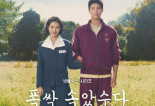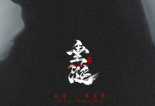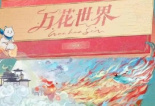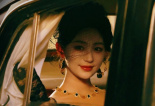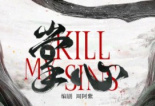In the five thousand years of civilization history of the Chinese nation, bamboo slips, as an important ancient writing carrier, carry rich historical and cultural information.However, as time goes by, these precious cultural relics gradually fade out of people's daily life and become strange and distant.In order to thoroughly implement the spirit of the directive to promote the creative transformation and innovative development of China's excellent traditional culture, a cultural program called Chinese Bamboo Slips came into being.
《Chinese bamboo slips》The camera focuses on the place where the bamboo slips were unearthed, and through various innovative forms of expression such as on-site visits + live drama + cultural interviews, the bamboo slips and cultural relics collected in the museum are displayed in the vastThe heritage on earth and the words written in ancient books come alive.In the program, the audience can follow the footsteps of the film crew and personally enter the excavation site of the bamboo slips and feel the vicissitudes and weight of the ancient times.
During the on-site visit, the program team invited archaeological experts and historians to lead the audience to explore the historical stories and cultural connotations behind the slips.Through expert explanations, the audience can understand the craftsmanship and writing methods of bamboo slips and their important role in ancient society.At the same time, the program team also used modern technological means to conduct high-definition shooting and three-dimensional reconstruction of the bamboo slips, allowing the audience to appreciate the detailed beauty of these cultural relics more clearly.
The live drama link combines slip culture with drama art, and reproduces the life scenes and cultural features of ancient society through the actors' wonderful performances.These dramas not only allow the audience to feel the charm of ancient culture, but also allow them to gain a deeper understanding of the connotation and value of bamboo slip culture through appreciation.
In the cultural interview session, cultural celebrities, experts, scholars, and bamboo slip enthusiasts were invited to discuss the inheritance and innovation of bamboo slip culture.The guests shared their unique insights and experiences on bamboo slip culture, and also put forward suggestions and measures on how to better protect and inherit this intangible cultural heritage.
Episode 1: Hua and Lu
In the ancient Qianling County, two county magistrates, Hua and Lu, jointly shouldered a mission - to create a peaceful and prosperous home for the people of Qianling.They are not only partners in governance, but also spiritual confidants.Hua means gentleness and wisdom; Lu means bravery and courage.The two like-minded people regard the prosperity of Qianling as their own responsibility and vow to make this land a paradise for people to live and work in peace and contentment.
However, there are unforeseen circumstances.At the critical moment when Lu was quelling the banditry, he unfortunately sacrificed his life for the sake of peace in Qianling.Hua lost his best friend and was heartbroken with grief, but he knew that Lu's last wish had not yet been fulfilled, so he turned his grief into strength and continued to shoulder the important task of managing the Qianling Mausoleum.

One day, Hua was walking alone among the mountains and rivers of Qianling. The beautiful scenery in front of him aroused his deep longing for Lu.Suddenly, he seemed to hear Lu's voice, which traveled through time and space and echoed in his ears.
“Hua, look at the landscape of Qianling, how beautiful and peaceful it is.Although I am no longer here, my soul still protects this land.”Lu's voice was gentle but firm.
Hua turned around, only to see the wind blowing over the hills and the leaves rustling.He knew that this was Lu's soul talking to him.
“Lu, I will never forget your sacrifice.Every inch of the Qianling Mausoleum is engraved with your bravery.”Hua's voice was filled with endless respect and sorrow.
Although the two are in different time and space, their hearts are closely connected.They looked at the mountains and rivers where the mausoleum was moved and recited ancient poems to express their love for this land and their longing for the future.
Hua recited in a low voice the verses from - The Book of Songs, Qin Feng, Wu Yi -: How can it be said that there are no clothes?Be in the same robe as your son.The king raised his army and repaired my spear.I share the same hatred with you!“His voice was full of nostalgia for Lu and firm belief in the future.
Lu was at the other end, responding with《Chu Ci·Nine Chapters·Ode to Oranges》: ”The empress and the emperor are good at growing trees, and oranges are everywhere.He was ordered not to move, but was born in the southern country.It's so solid that it's hard to move, but it's even more determined.%His voice seemed to have crossed the boundaries of time and space, intertwined with Hua's singing, and together they composed a hymn of moving to the mausoleum.
Episode 2: Three Poems
In the chaotic times of the late Qin Dynasty, wars were raging and the people were in dire straits.During these turbulent years, there were two county magistrates - County Magistrate Chang and Ling Shi Hua. They fought side by side. In order to protect the peace of the people, they fought a life-and-death struggle against the revolting peasant army.However, the torrent of history was ruthless, and the official office was finally breached. At this last moment of life and death, Chang and Hua reluctantly threw the slips carrying different memories into the well, hoping to leave some historical information for future generations.witness.
The slips record every bit of society in the late Qin Dynasty, including the wisdom and sweat of Chang and Hua in governing the place, the joys, sorrows, and joys of the people, and their aspirations and expectations for future life.These slips are like time capsules, sealing the memories and emotions of that era.

Time flies, time flies.When later generations of archaeologists salvaged these slips from the well, their historical value was self-evident.What is even more surprising is that under the influence of some mysterious power, the words on the slips actually showed a strange brilliance.In this brilliance, the deceased Chang and Hua, as well as the descendants who are diligently farming and educating children, seem to have traveled through the boundaries of time and space, gathered together like a dream.
They recited three poems from different periods affectionately.The first poem was written by Chang Yuhua in the late Qin Dynasty. The poem is full of concern for the people and loyalty to the country; the second poem was written by later generations during peacetime. The poem expresses respect for the efforts of the predecessors.Gratitude and praise for a better life; the third poem is a poem that children recite in unison in school. The poem contains infinite longing and hope for the future.
These three poems, like a historical trio, transcend the barriers of time and space, closely connecting the war in the late Qin Dynasty with the peace and hope of later generations.They are not only the inheritance of history, but also expectations and sustenance for the future.In this dreamlike moment of time travel, Chang and Hua and their descendants felt an emotional bond that transcended time and space, as if the long river of history had converged into an eternal force at this moment.
Episode 3: Qin Jian
In the third episode of the program, we used the perspectives of “ Xi”, the owner of Tomb No. 11, and “ Zhong”, the owner of Tomb No. 4, to deeply explore the historical memories buried in the Qin bamboo slips in Yunmengsuihudi.These Qin bamboo slips, as precious cultural relics, bear witness to all aspects of Qin Dynasty society and reveal to us the legal system, cultural features and people's living conditions of that era.
Through the organic combination of animation special effects and location shooting, we successfully presented those distant and unfamiliar images of ancient people and historical scenes in a real, three-dimensional and vivid way.The audience seems to be able to travel through time and space, be in that ancient era, and feel the wisdom and diligence of the ancients.

In this episode, we are honored to invite Mr. Chen Zhenyu, former director of the Hubei Provincial Institute of Cultural Relics and Archaeology, Mr. Liu Hainian, member of the Honorary Division of the Chinese Academy of Social Sciences, and Ms. Meng Man, professor of the School of History and Culture of Minzu University of China.Together with the host Long Yang, they gave an in-depth interpretation of the legal systems and norms corresponding to agriculture, industry and commerce in the Qin Dynasty.In their wonderful narration, the audience can not only understand the legal provisions and regulations of that era, but also feel the profound thoughts and value pursuits behind these systems.
In addition, through careful organization of location shooting, we successfully captured real moments of the historical scene.Those ancient buildings, utensils and life scenes are all perfectly presented under the lens.The audience seems to be immersed in the scene and feel the atmosphere and style of that era.
This program is not only an exploration of history, but also a cultural inheritance.Through the wonderful interpretation and vivid presentation of Long Yang and other experts, the audience can have a deeper understanding of the history and culture of Qin Dynasty society.At the same time, this is also an expansion of the audience's knowledge horizons, allowing them to increase their knowledge and broaden their horizons while enjoying the program.
Episode 4: Zhangjiashan Han Slips
In the vast history, Zhangjiashan Han Bamboo Slips, with its unique status and value, has opened a window for us to the social system and cultural landscape of the early Western Han Dynasty.Recently, the Zhangjiashan Han Bamboo Slips that have attracted much attention have become a research hotspot. The more than 2,000 bamboo slips contained in it are not only the first large-scale Han Dynasty laws and regulations unearthed in China, but also a vivid annotation of the historical proposition that the Han Dynasty inherited the Qin system..
The unearthed Han bamboo slips in Zhangjiashan left extremely precious original materials for future generations.It includes - Er Nian Ling - Zou Jian Shu - Han Lv Chapter 16 - Gong Ling - and other legal provisions and official documents. These precious documents provide us with the early Western Han Dynasty.direct evidence of the legal, political, and economic systems of the year.
In the program, three experts, Li Junming, a researcher at the Center for Research and Protection of Unearthed Documents at Tsinghua University, Meng Man, a professor at the School of History and Culture at Minzu University of China, and Yang Bo, an associate researcher at the Institute of Ancient History, Chinese Academy of Social Sciences, combined the original records of Zhangjiashan Han Bamboo Slips to interpret them in simple and in-depth termsIt describes the social system and cultural outlook of the early Western Han Dynasty.They not only explained in detail the specific content and implementation of Han laws, but also deeply explored the social background and historical logic behind these laws.

The Han Dynasty inherited the Qin Dynasty system, which not only means that the Han Dynasty inherited the institutional framework of the Qin Dynasty, but also means that the Han Dynasty developed and innovated on the basis of inheritance.The unearthing of Han bamboo slips in Zhangjiashan reveals to us the continuity and development of the Han system inherited from the Qin system.In terms of the legal system, the Han Dynasty refined and improved the legal provisions on the basis of inheriting the laws and regulations of the Qin Dynasty and combined with its own social reality and political needs, making the legal system of the Han Dynasty more complete and sophisticated.
In terms of political and economic systems, the Han Dynasty also innovated and developed on the basis of inheriting the Qin Dynasty.For example, while inheriting the prefecture and county system of the Qin Dynasty, the Han Dynasty also implemented a feudal system. This system not only maintained centralization of power, but also took into account local interests.In terms of economic systems, the Han Dynasty implemented a series of reform measures such as the land equalization system, which effectively promoted the recovery and development of the social economy.
The excavation and research of Han bamboo slips in Zhangjiashan not only provide us with valuable historical data, but also reveal the continuity and development of the Han Dynasty's inheritance from the Qin Dynasty.This historical phenomenon not only reflects the inheritance and innovation of ancient Chinese institutions, but also provides an important perspective and inspiration for our understanding and understanding of history today.
Through the study of Han bamboo slips in Zhangjiashan, we can have a deeper understanding of the social system and cultural outlook of the early Western Han Dynasty, and we can also more clearly see the continuity and development of ancient Chinese systems in inheritance and innovation.This is of great significance for us to understand history, understand culture, and guide reality.
Episode 5: Tianhui Medical Brief
In the vast history, medicine has been an important part of human civilization, and its development process embodies the wisdom and efforts of countless predecessors.《Chinese bamboo slips》The fifth episode will lead the audience into a medical world full of mystery and legends - Tianhui Yijian.This is not only the unearthed medical document that most systematically reflects the medical aspects of the Qin and Han Dynasties so far, it is also a precious medical book that reveals to us the medical style of that era.
The discovery of Tianhui Medical Slips has undoubtedly opened a door to the palace of ancient medicine for us.It is not only a valuable asset in the medical field, but also an important carrier of cultural inheritance.Through this batch of precious medical slips, we can have a glimpse of the prosperity and development of medicine during the Qin and Han Dynasties, and feel the ancients' awe and pursuit of life and health.

In order to let more people understand the charm and value of Tianhui Medical Slips, the program team of -Chinese Bamboo Slips- carefully planned, combined with animation special effects and location shooting, to recreate the story scenes in Tianhui Medical Slips.The audience will have the opportunity to immerse themselves in the medical atmosphere of that era and understand the exquisite skills and outstanding achievements of ancient medicine.
In the program, experts will deeply interpret the medical knowledge contained in Tianhui Medical Slips and analyze the historical background and cultural connotation behind it.They will use vivid language and rich examples to help the audience understand the wisdom and value of ancient medicine more intuitively.At the same time, the use of animation special effects will make the process more vivid and interesting, and location shooting will bring a more realistic visual experience.
“Tianhui Medical Slips” are medical slips from the Western Han Dynasty. They were unearthed in 2012 from Han Tomb No. 3 in Laoguanshan, Tianhui Town, Chengdu, and are collected by the Chengdu Museum and the Chengdu Institute of Cultural Relics and Archeology.The name "Xi Xi" in the medical slips is Bian Que. The date of the medical slips is around the end of the Qin Dynasty and the beginning of the Han Dynasty. According to the distinctive Qi dialect in the medical slips, it can be inferred that the Tianhui medical slips are indeed medical books passed down by Bian Que and Cang Gong.".
Tianhui Medical Slips systematically discussed the principles of pulse diagnosis in traditional Chinese medicine for the first time, pioneering the use of visual inspection, hearing, asking, and feeling, as well as disease differentiation and treatment. Its diagnostic techniques, conclusions, and corresponding treatment methods and prescriptions were still widely circulated in later generations.



